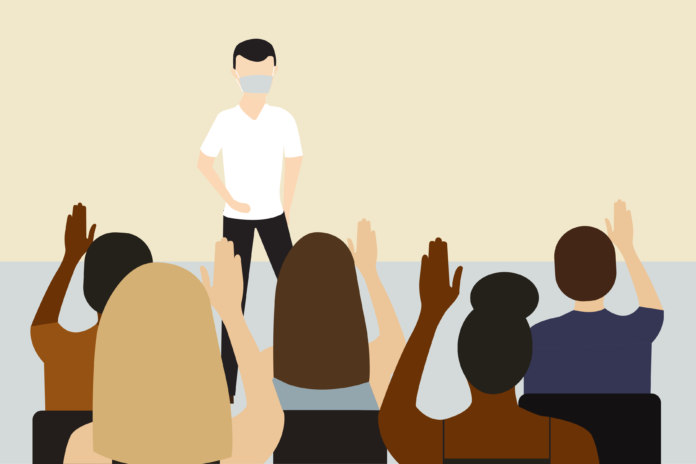After over a year of online school, members of the UC Davis community share why they are excited to return to learning in person
With Fall Quarter 2021 scheduled to be in person, plans are being made for a safe return to campus. As students polish their bikes for use again and professors prepare their lecture halls, students and faculty reflect on their experiences with online classes and their preferred methods of learning.
Rudy Lautner, a third-year environmental science and management major, attributes his preference for in-person learning to the ease of fulfilling interactions in an in-person setting and being on campus.
“There’s a greater dynamic between students and instructors,” Lautner said. “When you’re there in person, things become a lot more tangible with certain lab courses, or even any lecture course.”
While Lautner prefers an in-person learning experience, he enjoyed seeing teachers adapt and experiment with different class structures online. For example, he appreciated when professors deemphasized the importance of lectures and incorporated more discussion aspects into their courses.
Above all, Lautner’s takeaway from this year of remote learning was all the different ways in which a course can be structured, from replacing big exams with smaller quizzes to using different assessment methods. He looks forward to returning to campus with in-person learning this fall and seeing how teachers incorporate ideas and lessons from this past year of remote teaching.
“Teachers have a tremendous opportunity to take what they learned from remote learning from this past year and apply what worked or […] reconsider how to adjust that and how to go back to in-person,” Lautner said. “This pandemic and virtual learning has really shed light on the different needs of students, I think more so than a normal, in-person setting.”
Melany Medina, a second-year psychology major, also prefers in-person learning over online school. Although Medina feels that online classes are more convenient, especially when juggling classes with internships and research opportunities, the social interaction that in-person learning allows is greatly lacking in online learning.
“I do miss having that in-person communication and social aspect,” Medina said. “To be able to ask the person next to you: ‘What was being asked during lecture? I didn’t understand.’ And from there, you’re able to make new friends or make new study groups.”
Moreover, Medina feels that it is easier to concentrate during in-person classes because of the excitement of the lecture halls and lack of technological distractions.
Looking ahead to Fall Quarter, Medina predicts that students will have to adapt and change the habits they have grown comfortable with this year online.
“I feel like it’s going to be a slow adjustment only because we’ve been away for such a long time,” Medina said. “I feel like not a lot of people are going to know what to do or how to be students again. We’re just so used to just waking up, going to lectures online and being in our [pajamas] all day.”
Scott Carrell, a professor of economics at UC Davis, is another member of the Davis community who looks forward to the return of in-person learning and prefers it over remote education.
“I think you just get a lot more social interaction [and] more questions answered,” Carrell said. “And there’s so many distractions in our world today; when you’re sitting at home in Zoomland it’s so easy to be distracted. Not that students aren’t distracted in class, but I think they’re less likely to be distracted if they come to class.”
While he prefers to teach in person, Carrell said he hopes to continue implementing office hours on Zoom and providing recorded lectures. Carrell said that there were new considerations involved with continuing online practices because offering recorded lectures risks lower class attendance.
“There’s a trade-off,” Carrell said. “If you have the recordings available, then students are less likely to come to class, but if you don’t have the recording available, students who have legitimate reasons for missing class don’t get the content. What I’ll do is hopefully have the recordings available but then offer incentives to actually attend live class through extra credit or attendance [points].”
Additionally, for Carrell, the experience of teaching remotely demonstrated the importance of interaction between students. He hopes to continue to fill this gap and provide opportunities for dialogue next year while teaching in person.
“Knowing there was [a] lack of interaction between students made me think I need to do more as a professor to try to foster that interaction because I think peers matter and students can learn from one another,” Carrell said. “I have to figure out exactly how I want to do that in a live class, but I do want to foster more interaction between students.”
Looking toward the future, Carrell reflected on what he is most excited for with the return to in-person classes.
“I like walking around campus and seeing students and young people, they give me energy,” Carrell said. “I go to my office most days, and I miss the college campus atmosphere. There’s more cows on campus now than there are students, so I’m looking forward to seeing the bikes rolling around the circle and a little bit of energy.”
Written by: Nora Farahdel — features@theaggie.org




